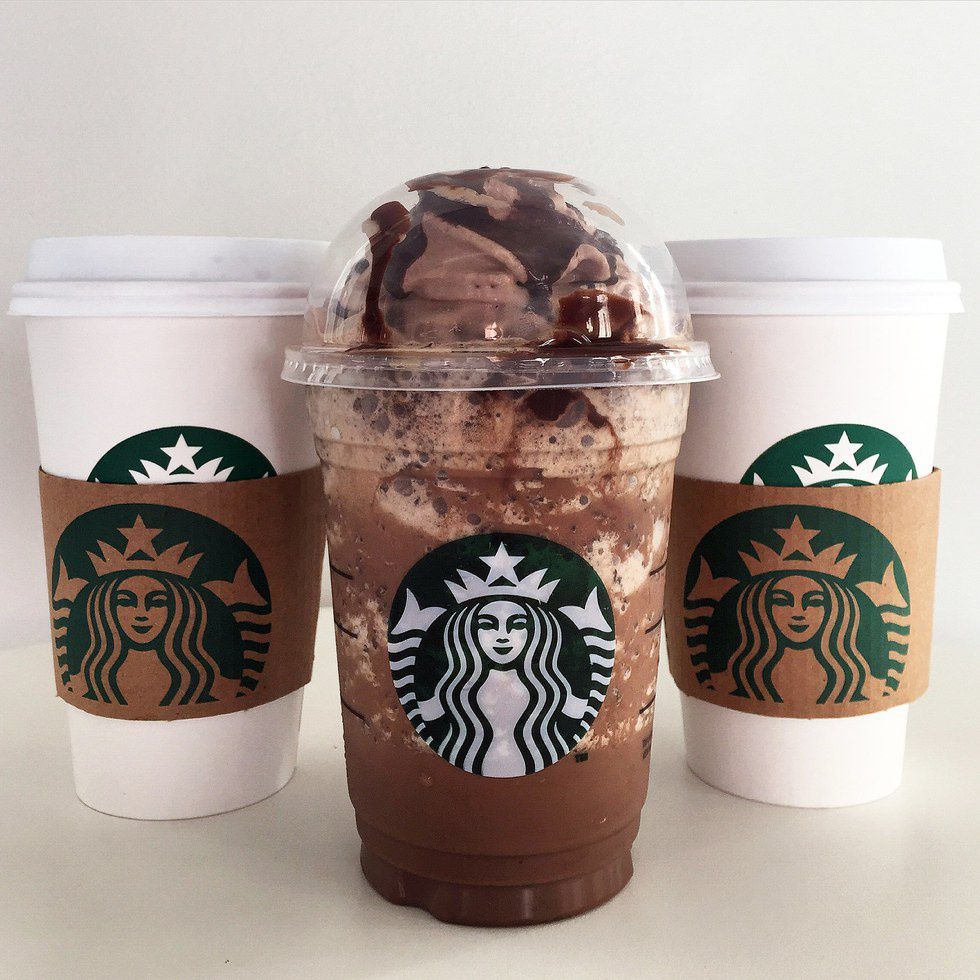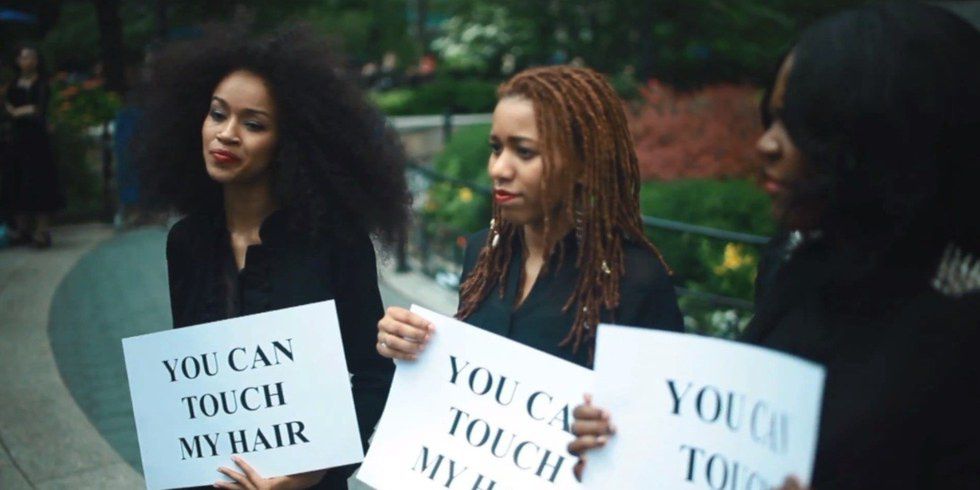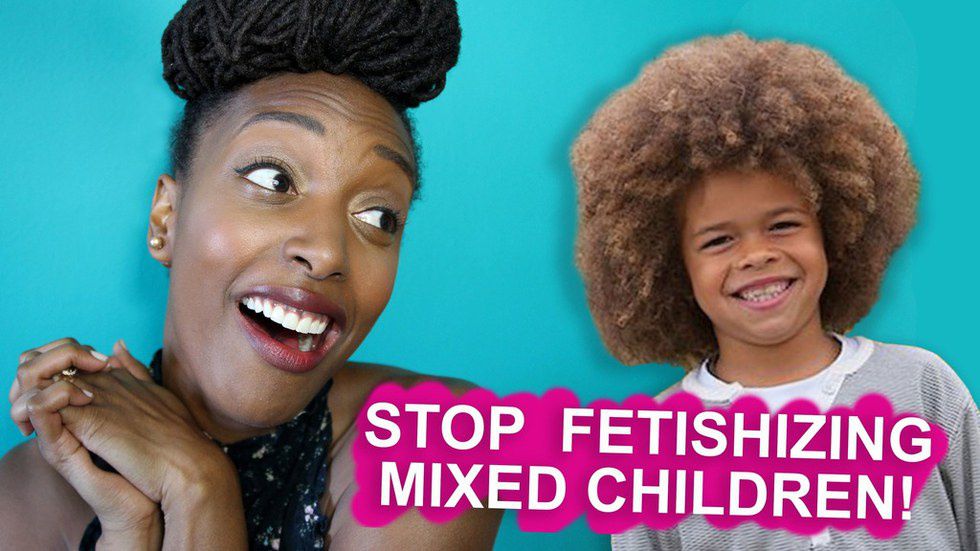As time goes on and we approach the reality of a post-racist society I’ve become increasingly aware of the ways in which people have left oppressive language behind and have taken up fetishizing people of color – particularly Blacks. Although overt oppression clearly has its pitfalls, I’m convinced that racial fetishization isn’t the best way to go either. In fact, it still ends up being pretty oppressive. Before we delve into the world of racial fetishization it is important to note that not all forms of such are of a sexual nature, having a peculiar fascination with or irrational devotion to a particular race is all it takes. Here are the ways in which you can avoid racial fetishizing
1. Stop calling us flavors and drinks that can be purchased at Starbucks.
It may be enticing to call a Black person mocha, chocolate, milk chocolate, caramel, Hershey Kiss (the list could go on), but…just don’t. The problem with calling us flavors is that it ends up dehumanizing us. You begin to talk about our distinctive traits as purchasable goods instead of human attributes. In objectifying our bodies, you perpetuate the idea that our bodies are more akin to hot commodities rather than, I don’t…our bodies. If self-ownership were rated on a spectrum, with one end labeled “public-property” and the other labeled “self”, unwanted and unsolicited flavor calling pulls us closer to the “public-property” side. Sure, some of the most frequent offenders include Black people, but we need to stop doing it too. Black are not things to be purchased, slurped up and then trashed. We are people, not goods.
2. Yes, you have to ask if you can touch our hair.
The success of my first article on my curly hair made it very clear that many curly-haired people of all colors could identify with my struggles. One of which was the idea that people could somehow invade my space and touch a part of my body. Newsflash people – my hair is still a part of my body. I get that some people are just really fascinated with kinky and curly hair, and at times the urge to touch it is just too great to resist. To that I say, resist! In the off chance that you just can’t resist said urge, please ask if you can touch someone’s hair before you do, and be prepared for whatever answer makes sense to that person. My straight haired people (of many races and ethnic backgrounds) are enamored of Black hair. They find it amazing that it can hold shape so well, that it can be so curly, so space commanding, so dynamic. And the shrinkage! Well…baby steps. When my hair was longer, and I was a little younger, I couldn’t go one week without feeling an unannounced tug on the back of my head. I would almost always sigh, roll my eyes and turn to the person with a smile. The point is, I didn’t like but I put up with it. Not because I wasn’t sure of I didn’t like it or not, but because I was concerned that people were waiting for me to live up to their “he’s so stuck up because he thinks he’s cute” expectations. I didn’t take ownership of my body because I was afraid of seeming stuck up. As I got older, I realized that this was not okay. It sounds elementary, but it is not okay to touch people without asking. Enough said.
3. Don’t date us to get a fix.
I didn’t think racial-dating was a thing until I got to college. Pre-college, whenever I would hear about the person who only dated outside of their race I would write it off. It was such a foreign concept to me, especially in high school where everyone was just happy to have someone who liked them. This one is tough. You don’t want to get in bed with people concerning their love lives, and human sexuality/love is complex. All in all, if you have a racial preference I’d charge you to evaluate why you have it in the first place. More often than not, these preferences stem from stereotypes. There are some that say that there are “good and bad stereotypes”. I don’t think so. No oversimplified idea of any group of people can be good for everyone. Not all Black women are feisty or outspoken. Not all Black men are athletic, “well endowed” sexual creatures. Not all Black women have curvy bodies with big butts. Not all Black women are okay with their curvy bodies being over-sexualized and/or objectified. If you are looking for certain traits in your current partner that you heard about or saw in other Black partners, you may be perpetuating a stereotype. We are unique individuals and there is a distinct difference between attraction and fetishizing.
4. Stop romanticizing our multiracial babies.
I’ll start by saying I know it’s hard to resist a cute baby. I get it! But, it’s just plain weird to go up to what appears to be an interracial couple and tell them that you love/want “biracial kids.” Moreover, it’s outright disrespectful to tell a Black woman that her kids would be so cute if they were fathered by her White partner or vice versa. At that point you may as well say, “Your kids would be pretty cute if they were part White.” I think you imagine a world of perfectly coiffed curly-fros of varying shades of light brown and blond – where everyone is racial ambiguous, blue-eyed and lighter complected. First, not all biracial people look the same. Not all biracial people are both Black and white, or mixed with Black at all. Second, you’re a part of a huge problem. You are a part of why things like pervasive, Black-colorism still exist in 2016. Blackness doesn’t necessarily need to be diluted to be beautiful. Third, if no one else will say it I will – not all biracial people fit the mainstream mold of “cute”. Yes, I said it. They will be “cute” because they are cute babies, not because they are biracial. Sure, you may be coming from a good place, and sure, you may not think that Black people are ugly, but my statement still stands. We cannot treat Black bodies as cute-baby-breeding-machines. Again, Black people are not public-property. As vlogger Chescaleigh says, “Get out of my uterus!”

























